Opinion
Ministers trade words over ownership of AI implementation platform

By Sonny Aragba-Akpore
The proposed implementation strategy and platform to grow Artificial Intelligence (AI) is now a source of disagreement between immediate past Communications & Digital Economy Minister, Isa Pantami and his successor ,Bosun Tijani.
When he spoke at the end of a 4-day National Artificial Intelligence Strategy (NAIS) Workshop hosted recently, Tijani said the workshop besides being a wake up call,was designed to formulate a strategy focused on addressing the needs of Nigerian citizens and communities to look ahead to the beauty and importance of AI.
While stating the benefits of adopting cutting-edge technologies such as Artificial Intelligence (AI) “ in raising the productivity of users for our collective prosperity, ”the Minister noted the increased attention on AI across the world and growth in investments in the technology in Nigeria saying: “Over 1 Petabyte of storage is already being allocated to AI projects in Nigeria by Galaxy Backbone Limited.
And the Pilot Compute Programme that we are undertaking, which is seeing 21st Century Technologies invest over $2 million in Graphics Processing Unit (GPU), is also going to put us in a position to start building and narrating the story for why we need to invest in our computing power as a nation.”
To fast track the adoption and implementation of the AI ,the Minister announced the relaunch of the National Centre for Artificial Intelligence & Robotics (NCAIR) saying:
“The relaunch of new and improved capacity at the National Centre for Al and Robotics (NCAIR) is to better fulfil its mandate” adding that “the Centre is a special purpose vehicle created to promote research and development on emerging technologies and their practical application in the areas of Nigerian national interest.
As a digital innovation and research facility, NCAIR focuses on Artificial Intelligence (Al), Robotics and Drones, Internet of Things (loT), and other emerging technologies, aimed at transforming the Nigerian digital economy”.
But his immediate predecessor, Isa Pantami disagrees strongly saying in a tweet that it was unnecessary for Tijani to relaunch a project(NCAIR) that he had started followed by a proper launch done by President Mohammadu Buhari and wondered why a relaunch.
In what looked like jostling for ownership, Pantami said that: ”The National Centre for Artificial Intelligence and Robotics has been built and commissioned in November 2020, almost four years ago.”
“The first of its kind in Africa. It has been very effective, and thousands of Nigerians have been trained and trained. Legacy is achieved, not claimed.”
Tijani thinks differently saying the relaunch has multiple deliverables including but not limited to the AI Collective:
“which is a community of practice collaborating towards accelerating the nation’s collective prosperity through an inclusive Al Ecosystem. The Collective will harness the power of Al to drive economic prosperity, accelerate innovation and social development, and position Nigeria as a leading force in AI for good globally.”
Tijani explained that “We need to make sure that as a nation, we are well structured to govern this (Artificial Intelligence) technology which is special.
AI by nature, is a tool to support productivity across different sectors, and Nigeria is a country that has always talked about diversification of our economy, so this is a unique opportunity for us to allow a technology that can help us to raise the level of productivity in agriculture, public health, education and many others, to the level that we truly want it to be, and that is what we are going to do,”.
The AI Strategy he explained further is what the country needs now adding “Nigeria needs the appropriate policies to government for the deployment and use of AI at the Federal level and at subnational levels. ”He highlighted the need to build platforms that can aid and support those who want to innovate so that they can thrive.
The NAIS Workshop brought together over 120 Artificial Intelligence researchers and practitioners, technology companies, civil societies, and other groups from across the world to co-create a comprehensive national AI strategy. Outcomes from the workshop include a draft national AI strategy document defining the strategic imperatives, policies, investments, implementation roadmap, governance structures, and necessary steps to catalyse Nigeria into an AI-driven economy.
It is not clear what the quarrel is between the two officials.
If one says he launched it and the other relaunched it,are both not working for Nigeria.?
It is not out of place to assume that one is weighed down by “ownership mentality “ and the other by “self centredness” and both are Nigerian syndromes.
Both men are self serving and that is the tragedy of lack of interest in service for humanity.
At the launch of NCAIR on November 13,2020,Pantami said “NCAIR will serve as a leading hub of innovation, research and development, knowledge transfer, and training in the areas of Artificial Intelligence (AI), Robotics and other emerging technologies.”
“Our adoption of regulatory sandbox frameworks for testing technology in a controlled environment will enable the Center accelerate the progress we are making in the development of our digital economy,” he added.
Pantami claimed then that the Centre was fully equipped with a Digital Innovation Lab, which will serve as a one-stop shop for digital innovation support; a Makerspace and Fabrication Lab (Fab Lab) Infrastructure that will support Innovation-Driven Enterprise (IDEs) for potential entrepreneurs to convert their ideas into products and services; Printed Circuit Board Facilities; 3D Printer; Co-working space for startups, and training facilities.
At NCAIR,s launch in November 2020,Pantami explained that “Artificial Intelligence is the refinery of the digital economy while Robotics is very useful in supporting companies in carrying out their repetitive tasks.”
“These are two very important emerging technologies that will shape the face of future technologies and we have decided to be proactive to enable us to play a key role in how these technologies evolve.
“The Fourth Industrial Revolution, fuelled by Big Data, propelled by robust computing capacity, advanced software and Artificial Intelligence is ushering new ways of living, well-being, learning, travelling and working.”
Pantami had also said that the centre would serve as a leading hub of innovation, research and development, knowledge transfer, and training in the areas of Artificial Intelligence, Robotics and other emerging technologies.
“This centre will also serve the purpose of creating a vision for Artificial Intelligence in the country, identifying Artificial Intelligence-driven use-cases; support data stewardship and develop an Artificial Intelligence ecosystem, among others.
The relaunch of NCAIR is expected to support the Nigerian Multilingual Large Language Model which aims to build the most robust Nigerian large language model.
“To achieve this, the project will leverage the support of the three Million Technical Talent (3MTT) programme Fellows to collate high quality Nigerian language data and fuel the development of some of the most sophisticated AI models.”
NCAIR will also support Nigeria’s Computing Infrastructure Pilot to accelerate the development of Al projects of national interest for which Galaxy Backbone Limited will partner 21st Century Technologies to develop Nigeria’s national compute project which will be available to local researchers, startups, government entities working on critical Al projects that are of national interest. It will reside at the Galaxy Backbone Data Centre and accessible through NCAIR.
Opinion
5G,IoT and AI to boost global GDP by 2030

By Sonny Aragba-Akpore
With Mobile technologies and services now generating around 5.8% of global Gross Domestic Product (GDP) a contribution that amounts to about $6.5 trillion of economic value, there are strong projections that by 2030, this figure will rise to almost $11 trillion, or 8.4% of GDP.
Global System of Mobile Communications Association (GSMA) says much of this will be driven by countries around the world increasingly benefiting from the improvements in productivity and efficiency brought about by the increased take-up of mobile services and digital technologies, including 5G, Internet of Things (IoT) and Artificial Intelligence (AI).
The GSMA recently introduced the 5G Connectivity Index to provide insights into 5G performance in 39 markets in order to encourage informed decision-making.
In terms of Economic Impact,
the GSMA emphasizes the economic benefits of mobile technologies and services, including 5G, projecting that they will contribute significantly to GDP growth by 2030.
“The GSMA provides specific reports and analyses on 5G in different regions, such as Sub-Saharan Africa, Asia ,Middle East among others highlighting the progress and challenges of 5G deployment in specific areas.”
In Sub Saharan Africa for instance with particular attention on Nigeria,South Africa,Egypt,Kenya and Botswana among others some measure of progress in deployment has been recorded.
The rollout of 5G has brought immense benefits across multiple industry sectors, particularly those involving internet of things (IoT) and artificial intelligence (AI) applications in which the real-time transfer of data is crucial.
More broadly, the adoption of 5G is expected to accompany increased data use across the globe, with forecasts anticipating mobile data traffic of over 300 exabytes per month by 2030, more than twice the volume consumed in 2024 according to Statista.
And with a third of global population expected to be covered by this fifth generation (5G) networks ,a technology that has defined new ways of communication by 2025 ,GSMA
says the technology has surpassed growth projections of all times.
“5G subscriptions increased by 163 million during the third quarter 2024 to total 2.1 billion. 5G subscriptions reached close to 2.3 billion by the end of 2024 accounting for more than 25 percent of all global mobile subscriptions.
“4G subscriptions continue to decline as subscribers migrate to 5G” according to GSMA.
As of the first quarter of 2024, there were nearly two billion 5G connections worldwide, with 185 million new additions. This is expected to grow to 7.7 billion by 2028.”
Statistics show that 5G is the fastest-growing mobile broadband technology, reaching 1.5 billion connections by the end of 2023.
It only took four years to reach this number, compared to 10 years for 3G and more than five years for 4G.
“5G is more than a new generation of technologies; it denotes a new era in which connectivity will become increasingly fluid and flexible.5G Networks will adapt to applications and performance will be tailored precisely to the needs of the user” GSMA submits.
By covering one-third of the world’s population , impact on the mobile industry and its customers will be profound according to GSMA.
To deepen the spread of 5G ,GSMA is working closely with the mobile operators pioneering 5G, “by engaging with governments, vertical industries including automotive, financial services, healthcare providers, transport operators, utilities and other industry sectors to develop business cases for 5G.”
And In order to accelerate the growth and spread, many operators are said to be deploying
AI technology as part of an integral part of telecoms operators’ strategic and operational plans.
“Operators are making important advancements in the deployment of AI technology, which is serving as a transformative force shaping the telecoms industry. By deploying autonomous AI-based systems, operators can enhance operational efficiency, customer satisfaction and security, while also creating new revenue opportunities”.
China, South Korea, the United Kingdom, Germany, and the United States are the leading countries with robust 5G coverage in the world.
Since the first commercial launches of the fifth generation of mobile networks in late 2018, these five countries have emerged as leaders because multiple companies in these countries have deployed networks and are selling compatible devices. Countries including Switzerland and Finland are up and comers in 5G development, though they have limited deployment.
In China there are three Companies leading in deployment.
The world’s largest 5G network was launched by the three largest Chinese network operators Oct 31, 2019, according to the state-run news agency Xinhua. These are China Mobile, China Unicom, and China Telecom which all activated their networks in less than five months after they were issued 5G licenses.
Each of the network operators offered their 5G services at $18 per month in 50 Chinese cities at the beginning of the launch.
GSMA expects 36% of China’s mobile users to be using 5G by 2025. That’s about 600 million subscribers, who would also make up 40% of the entire global 5G market by this year.
This is all despite efforts made by the United States government to hamper the progress of Chinese vendors, though those efforts may affect how Chinese companies may expand into the global market.
In South Korea,SK Telecom and Korea Telecom run as the main competitors for the South Korean 5G market.
SK Telecom acquired spectrum in the 3.5 GHz and 28 GHz frequencies to prepare for deploying 5G.
In April of 2019, the Enterprise claimed to be the first mobile carrier in the world to launch 5G services to work on 5G smartphones. SK Telecom asserted an edge over rival Verizon, as the former launched 5G services available at the same time as Samsung Galaxy S10 5G smartphone launched in South Korea. Verizon launched mobile 5G services in the U.S. before a 5G enabled smartphone was available to U.S. consumers.
SK Telecom also conducted tests with a 5G Standalone (SA) Core (a core not reliant on the 4G network) for their 5G network in cooperation with Samsung Electronics.
The world’s largest 5G network was launched by the three largest Chinese network operators Oct 31, 2019, according to the state-run news agency Xinhua. These are China Mobile, China Unicom, and China Telecom which all activated their networks in less than five months after they were issued 5G licenses. Each of the network operators offered their 5G services at $18 per month in 50 Chinese cities at the beginning of the launch.
“What we are seeing is a concerted effort by the Chinese — the operators, vendors, and government regulators — to deploy 5G as quickly as possible,” Chris Nicoll, principal analyst at ACG Research, pointed this out in a November 1, 2019 SDxCentral article.
With all of these players working together, the three network operators had collectively deployed nearly 86,000 5G base stations peaked over 130,000 by the end of 2019. The latter number breaks down into China Unicom and China telecom, with each planning to install 40,000 base stations, and the market leader China Mobile to install 50,000.This was the projection by 2019 but they have since overshot this by the beginning of 2024.
The International Telecommunication Union (ITU), says 5G coverage reached 40% of the world’s population in 2023 with an uneven coverage and distribution with developed countries having more coverage than low-income countries:
In Europe ,68% of the population is covered and
Americas had 59% of the population covered while
Asia-Pacific has 42% of the population covered as at 2023.
Arab States have 12% of the population covered.
Commonwealth Independent of States (CIS) had 8% of the population covered.
ITU figures show Africa,s coverage rose to 10 % of the population by 2023 .
The ITU also notes that 90% of the world’s population is covered by 4G, but 55% of people without access to 4G live in low-income countries because In low-income countries, 3G is often the only technology available to connect to the Internet.
The ITU develops and adopts international regulations and global standards to enable the harmonization and implementation of broadband mobile networks.
In Africa, around a dozen nations have launched services including Botswana, Kenya, Mauritius, Madagascar, Nigeria, Seychelles, South Africa, Tanzania, Togo, Zimbabwe, and Zambia but Africa is a patchwork of 54 countries.
And penetration is predicted to be slow.
By 2027, Ericsson predicts that 80 percent of phone users in Europe will have 5G service.
At the same time, 5G subscriptions in Africa, home to 1.4 billion people, May stagnate at a little over 10 percent. Why will so few people in Africa get access to 5G services?
China, South Korea, the United Kingdom, Germany, and the United States remain the leading countries with robust 5G coverage in the world.
While many countries are already providing robust services,Africa remains on the outskirts of 5G services.
The countries in Africa that have launched 5G networks, include South Africa with its roll out
In March 2022, when the Independent Communications Authority of South Africa (ICASA) sold spectrum across several bands.
In Nigeria,MTN rolled out commercial 5G services in Lagos in 2022, with other roll out in Abuja, Port Harcourt, Ibadan, Kano, Owerri, and Maiduguri among others.
MTN Congo announced that it was the first country in Central Africa to deploy 5G.
In Botswana Orange deployed 5G technology to provide new services in the Gaborone and Francistown regions.
Other countries in Africa that have launched 5G Fixed Wireless Access (FWA) services include: Angola, Kenya, Zambia, and Zimbabwe.
Analysts say “5G’s potential is growing due to its ability to deliver fiber-like speeds. However, there are still challenges in the region, such as:
Urban areas are reaching their maximum capacity whereas a large portion of the population lives in rural areas.
This explains why 5G adoption in the sub-Saharan region is currently below six percent “
Analysts report that 5G deployment in Africa faces many challenges, including Spectrum assignment,regulatory issues,infrastructure,security,financial resources among others.
“Spectrum is a limited resource that is already in use by other services, such as TV broadcasters and satellite operators. Governments need to open up frequencies and grant 5G licenses at reasonable prices. “
Infrastructure is another major challenge.
“5G networks require a large initial investment, including expensive devices, antennas, and Radio Access Network (RAN) hardware. The infrastructure needs to be fiberized to support 5G services.
Regulatory conditions also serve as challenges to deployment.
For instance “regulatory authorities may not have started the process for licensing and granting frequencies in the right portion “
“Most of the equipment and devices required for 5G deployment need to be imported.”
There are also security challenges that make
5G technology vulnerable to cyber security threats, such as tracking calls and exposing user locations.
Opinion
Right of Reply: THE PUNCH AND BUSYBODY BUSINESS

The recent declaration of a State of Emergency in Rivers State has triggered diverse commentaries from a wide range of Nigerians.
Almost everyone hailed the presidential proclamation because of the visible threat to law and order in the state at the time the action was taken. Of course, there were a few naysayers who read political meanings into an otherwise sincere and prompt intervention.
One such negative interpretation is the position taken by the Editorial Board of The Punch newspaper. In one of its editorials published on the matter, the national daily claimed that the entire crisis was caused by what it described as “the needless meddlesomeness in the governance of the state by its former governor and Tinubu’s Federal Capital Territory Minister, Nyesom Wike….” It is unfortunate that this narrative and others like it have become commonplace in the media space.
How did the Editorial Board of a reputable newspaper arrive at such a conclusion? Their claim that the Sole Administrator, Admiral Ibok Ete Ibas (rtd), has been acting a script purportedly written by the Minister of the Federal Capital Territory, Nyesom Wike, is also faulty and has no iota of truth.
They also faulted the sacking of all political appointees who served in Governor Siminalayi Fubara’s administration, insinuating that their replacements were drawn from Wike’s political camp. Again, nothing can be further from the truth.
Since his appointment as the Sole Administrator of Rivers State, Admiral Ibok Ete Ibas has been running the state with the abundant human resources available in the state and has not imported anybody from outside the state. Did the Editors of The Punch really expect him to run the administration with the politicians loyal to the suspended governor?
Do they not know that the crop of political appointees who served Fubara would have found it difficult to work with the Sole Administrator?
Certainly, they know the truth, but they have chosen to stoke the fire to generate more tensions in Rivers State.
Certain interests might have commissioned this editorial to cast aspersions on the Sole Administrator and raise doubts about his capacity to run the state.
It may also have been the handiwork of Wike’s political detractors, the man whom many politicians love to hate for no other reason than envy and jealousy.
We urge the Punch newspapers to seek a better mode of intervention in the political situation and not dwell on innuendos and unsubstantiated allegations against certain political actors in order to blackmail them.
Dr Ike Odogwu
Opinion
“Chief. Dr. Ekuogbe Akpodiete; A Philanthropist, Lawyer, and Statesman”
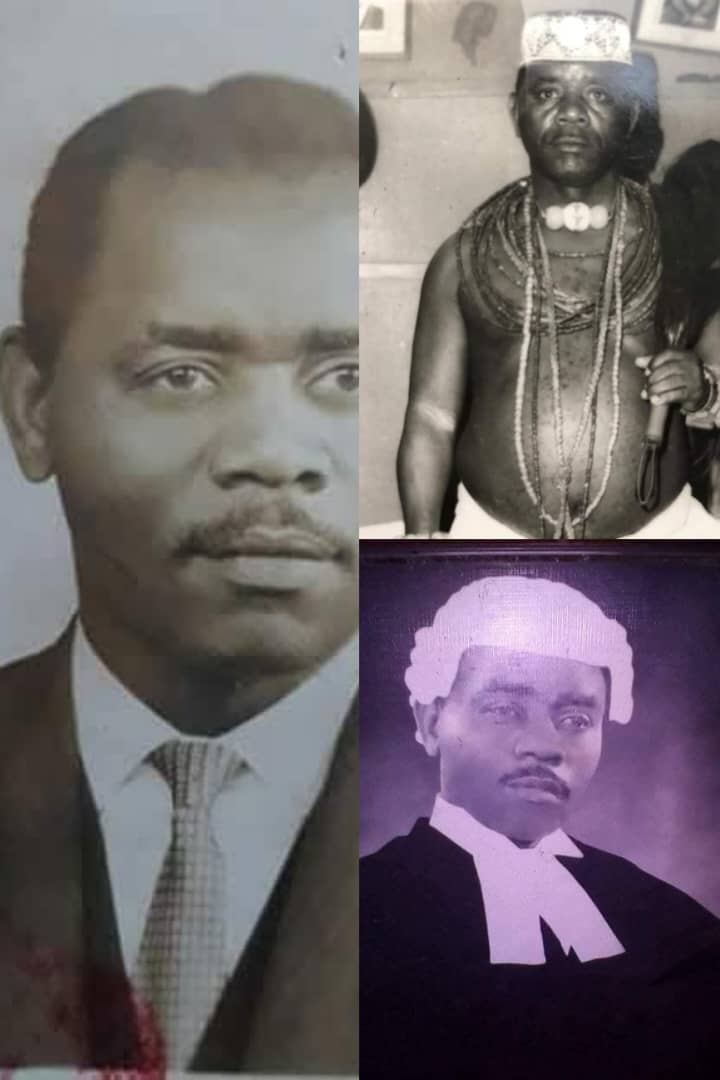
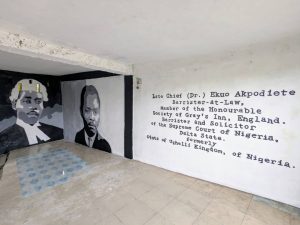
In a life of achievement, Chief Ekuogbe Akpodiete popularly called the Duke by his contemporaries in the UK was an assessment clerk, post office clerk, a court interpreter, an educationist, a business man, a political party chieftain, a Barrister and Solicitor, a Magistrate, the Otota (the Prime Minister) of Ughelli kingdom which is the highest traditional chieftaincy office that underpin the royal office of the Ovie of Ughelli Kingdom.
He was a trail blazer, a strict disciplinarian, a lover of people, and a philantropist. He saw to it that people lived in peace and happiness.
Born on the 4th of April, 1924, to parents cut from an industrious mould, Chief Ekuogbe Rowland Gregory Akpodiete took zealously to education that neither his mother Ughweriaka who was a trader, nor his father Akpodiete who was a farmer had.
He attended the Native Authority Primary School, Ughelli, and Enitona High School, Port Harcourt, for his secondary school education.
He thereafter had a brief teaching career in primary schools in Ofuoma near Ughelli, he worked as a process clerk in the then Sapele Township Department between 1950 and 1953, serving at the same time as an interpreter in the local courts.
He proceeded to the United Kingdom to seek the proverbial Golden Fleece where he worked and paid his way through, studying Law. He was admitted into the Honourable society of Gray’s Inn, England, in 1965, and shortly after, he returned home to Nigeria and attended the Nigerian Law School. He was called to the Nigerian Bar in 1966. He immediately started practice in Lagos. However, his practice in Lagos was regrettably abridged by the Nigerian Civil War, which drove him to his hometown Ughelli in 1967, where he continued to practise among his kith and kin as the first Legal Practitioner.
Chief Ekuogbe Akpodiete established himself in Ughelli. After the civil war, he served in the now defunct Mid-western State Judiciary from 1972 to 1975 as a Magistrate.
He was conferred with the chieftaincy title of Urhukperovie of Ughelli kingdom (the light of the King) by the then reigning Ovie of Ughelli, His Royal Highness Oharisi II of blessed memory in 1977.
In the quest for more knowledge, he went back to England for his Master’s degree in law (LL.M) and later a Ph.D. at the University of Warwick.
He was awarded an honourary doctorate degree (Ph.D) by Tenesse Christian University from the United States of America in 1991.
He became the Otota (the Prime Minister) of Ughelli Kingdom in 1986, an office he occupied until his demise on 9th April 1995.
Chief Ekuogbe Akpodiete was also politically involved. In the heady days of the Awolowo-led Unity Party of Nigeria, he was the party’s legal adviser in Ughelli and was on hand to assist during Chief Obafemi Awolowo’s campaign hosting in Ughelli and its environs.
In view of his love for people and entertainment, he established a popular cinema house, one of the first in Ughelli, known as REGA cinema, coined from his names, alongside an entertainment place called Unutakunu (people talk to people).
Chief Ekuogbe Akpodiete was blessed with wives and many children, grandchildren, and great grand children.
Mr. Olotu Akpodiete, PhD
Executive Director
Olotu & Ekuogbe Rowland Akpodiete foundation
-

 News17 hours ago
News17 hours agoBLACK EASTER: Over 150 massacred in Plateau, Benue
-

 News13 hours ago
News13 hours agoDouble tragedy: Father, three children, maid killed in Osun road crash
-
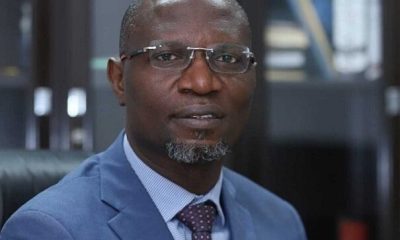
 News13 hours ago
News13 hours agoSAD! SEC DG says “we can’t recover N1.3trn Nigerians lost to CBEX ponzi scheme”
-
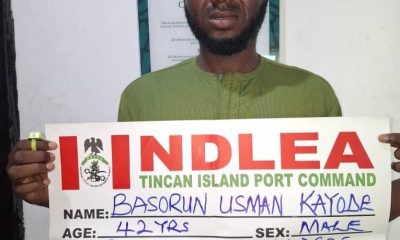
 News11 hours ago
News11 hours agoNDLEA nabs bandits supplier with drugs concealed in private part(Photos)
-
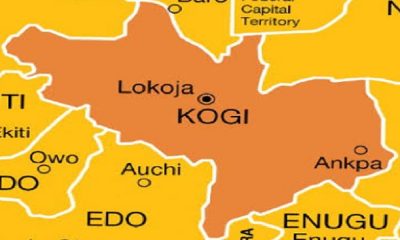
 Metro16 hours ago
Metro16 hours agoShock as 2 naked lovers found dead in Kogi
-

 News17 hours ago
News17 hours agoIMF expresses concern over high poverty rate, food insecurity in Nigeria
-

 Economy17 hours ago
Economy17 hours agoVolvo announces termination of 800 U.S. workers, cites tariff, market decline
-

 News12 hours ago
News12 hours agoNUJ-FCT Chairman Urges Journalists to Embrace Spirit of Easter






